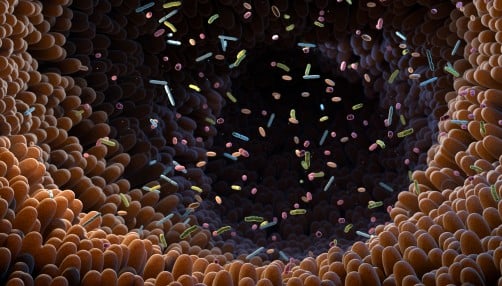URGENT UPDATE: A groundbreaking study from UCLA Health reveals that a child’s gut microbiome may significantly impact their emotional health later in life, influencing risks for depression and anxiety. Published in Nature Communications today, this research underscores a critical link between gut bacteria and brain function.
The study finds that children whose gut microbiome shows a higher presence of bacteria from the Clostridiales order and Lachnospiraceae family at just 2 years old are at increased risk for internalizing symptoms, including anxiety and depression, by 7.5 years old. This connection is particularly alarming as these mental health issues often first manifest during middle childhood.
According to lead researcher Dr. Bridget Callaghan, the findings highlight how early gut health could play a pivotal role in shaping emotional well-being. “By linking early-life microbiome patterns with brain connectivity and later symptoms of anxiety and depression, our study provides early evidence that gut microbes could help shape mental health during the critical school-age years,” said Dr. Callaghan, who serves as an associate professor of Psychology at UCLA.
The observational study analyzed data from the Growing Up in Singapore Towards Healthy Outcomes (GUSTO) project, which monitored children’s health through various metrics, including stool samples at age 2 and MRI brain scans at age 6. The data from 55 participants showed a compelling correlation between gut bacteria and brain connectivity, reinforcing previous research linking gut health to adult mental health issues.
Notably, the researchers identified that the gut microbiome composition at an early age is associated with brain connectivity alterations related to emotional regulation. These alterations could predispose children to emotional challenges as they grow. Dr. Callaghan noted that some gut bacteria may be sensitive to stressors, potentially explaining their role in the development of internalizing symptoms.
The implications of this research are profound. If left unaddressed, symptoms of anxiety and depression could lead to long-term mental health challenges, extending into adolescence and adulthood. This study marks a significant shift in focus, as prior research primarily concentrated on infants and toddlers, often overlooking school-aged children.
Looking ahead, researchers emphasize the need for experimental studies to determine causality and actionable steps. “We need to figure out what species within these larger groups are driving the findings. Once we have that information, there are relatively straightforward ways to change the microbiome, like probiotics or diet, that we could use to address issues,” Dr. Callaghan stated.
The research represents a collaborative effort involving several prominent institutions, including the Agency for Science, Technology and Research (A*STAR) and the National University of Singapore. As the study gains attention, experts and parents alike are urged to consider the importance of gut health in early childhood.
This urgent discovery not only opens new avenues for mental health interventions but also highlights the necessity of ongoing research into the gut-brain axis. As findings develop, families and healthcare providers may find new strategies to foster emotional resilience in children, starting from infancy.
Stay tuned for more updates on this vital topic as researchers continue to explore the intricate relationships between gut health and mental well-being.







